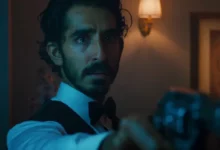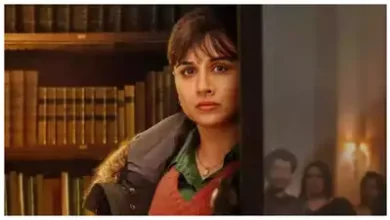Why Richard Shepard, the director of “Girls,” Recut His QuirkyDavid Bowie and Rosanna Arquette starred in the independent 90s film “The Linguini Incident.”
After he produced the mostly forgotten 1991 criminal comedy “The Linguini Incident,” starring David Bowie and Rosanna Arquette, Richard Shepard had to spend years in “movie jail” before he was allowed to go. However, the movie is now receiving a second chance thanks to a number of showings and an impending Blu-ray release.

Shepard remembers that almost everything that might go wrong with the production did. “I was no genius at 25 when I made this movie,” the filmmaker, who later directed TV shows including Lena Dunham’s HBO comedy “Girls,” and motion pictures like “The Perfection,” acknowledges.
Shepard states, “I was not,” in contrast to Dunham, who at that age was “in complete control of her artistic self.”
But Shepard jumped at the chance to try to improve the film and make it available to Bowie fans and niche cinema collectors when his original co-producer, Sarah Jackson, suggested he try to rerelease a director’s cut of the scrappy indie caper about two restaurant employees who decide to rob their bosses.
The production suffered in a number of ways even though it was able to assemble an independent dream cast that featured Buck Henry, Eszter Balint (“Stranger Than Paradise”), Andre Gregory, and Marlee Matlin. Shepard claims that the other producer of the movie vanished for extended periods of time and that his checks bounced.
Admitting that he was likely “an awful person as well as arrogant and untalented at the same time” at 25, he adds, “To make matters worse, the movie got taken away from me in the editing.”
On May 1, 1992, “The Linguini Incident” had its theatrical debut. That same weekend, the L.A. Uprisings began, which prompted a curfew across the city. According to Shepard, “the movie kind of opened and closed within 30 seconds.” “I entered a depressive state, and it took me a long time to find my way back into the industry.”
Eventually, “The Linguini Incident” was made available on VHS and then DVD under a number of titles, including the questionable “Shag-O-Rama.” It didn’t stream, but it gained a following along the road and is now remembered as one of Bowie’s rare humorous parts.
The director recalls that one of the highlights of the problematic production was working with the legendary actor and singer. He recalls, “It was pretty amazing that I got to spend this period of time with him. He was a deeply lovely person, fully engaged in the world.”
Despite her agent’s doubts, Arquette recalls that she accepted the new filmmaker’s movie because she was a fan of the screenplay and was “never one to choose things for just money.” She also leaped at the opportunity to collaborate with Bowie as a fan. She remembers, “He introduced me to some music—he was the one who introduced me to the band Sonic Youth. He was so well read, and we liked a lot of the same books.”
Arquette, whose father Lewis Arquette also made an appearance, says of the film, “It was cool because Iman and him fell in love during that movie and so he would tell me all about how crazy he was about Iman.” “If you understand that they were falling in love with each other, there’s a very funny moment she has in the movie.”
Shepard had to find the negative and the rights before he could recut the movie and think about a Blu-ray release. He claims that since every company that had invested in the film had filed for bankruptcy, “the paper trail went cold.” “We eventually discovered that the Screen Actors Guild had successfully asserted the movie’s copyright due to the extremely unusual circumstance of no residual payments being received.”
The full dailies were never located, but Shepard eventually discovered an extended cut that had been 35mm shown in Austria and was kept in a lab.
Shepard was able to add zooms, reframe pictures, and “make a scene that had very basic coverage feel like it has two or three extra shots in it” with the help of a fresh 4K transfer.
“I was able to give the movie an energy that it never had before and pace it up in a different way,” he claims.
It now closely resembles his initial idea and is a unique example of indie film from the 1990s.
“Returning to a movie that had been taken away from me and actually producing a version of the movie that’s much closer to what I had originally wanted has been an incredible experience,” he adds. “You can see how this movie and ‘The Matador,’ which I made ten or twelve years later, differ from one another.”
Prior to the Blu-ray release via MVD on July 25, Arquette and Balint will attend the Vidiots screenings in Los Angeles on May 9 and New York’s Quad on May 14.
Arquette tells fans to keep an eye out for the last scene, but she doesn’t want to reveal how it ends. She exclaims, “I adore the movie’s finale—the very, very last shot.”
Shepard expresses excitement for a new generation of Bowie fans to view a film that they haven’t been able to see in twenty or thirty years. “It’s a genuine independent movie of the time.”






